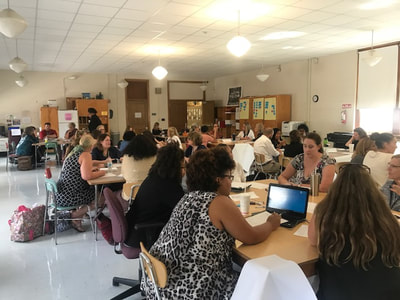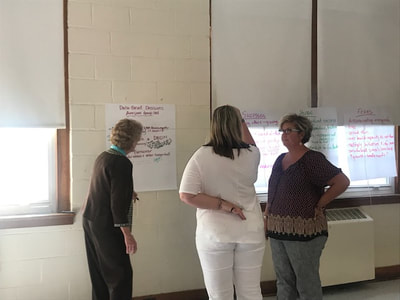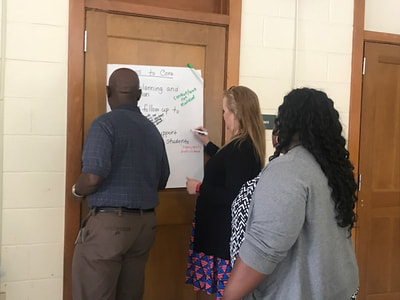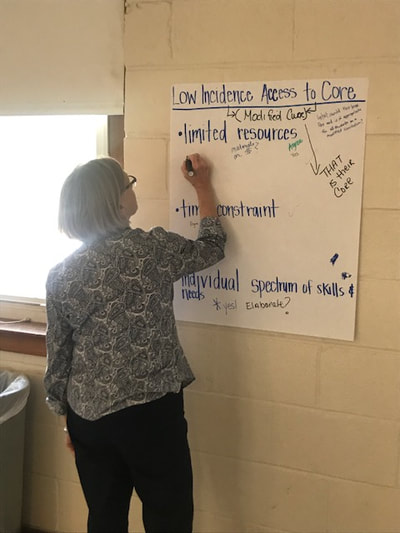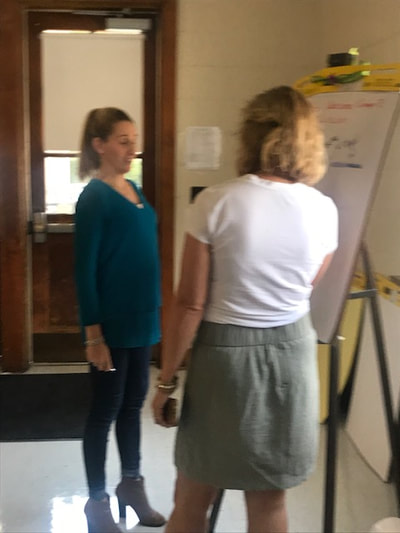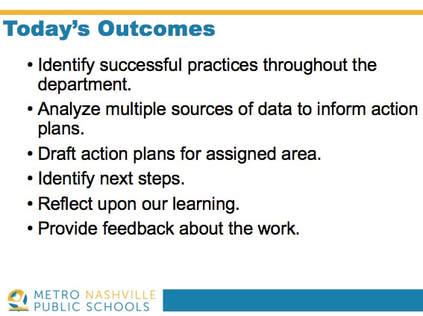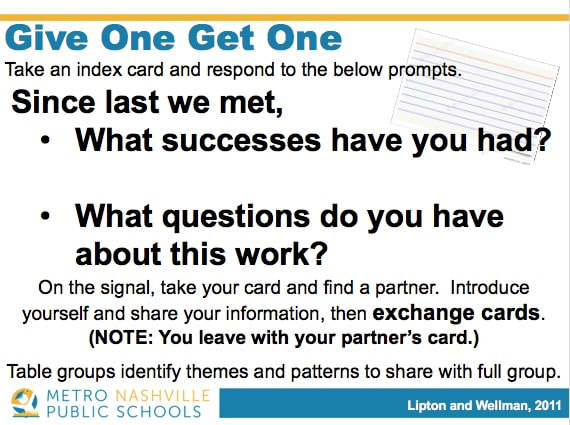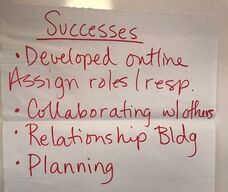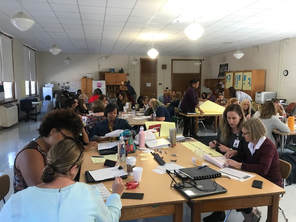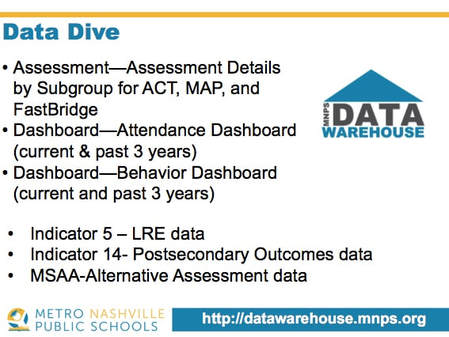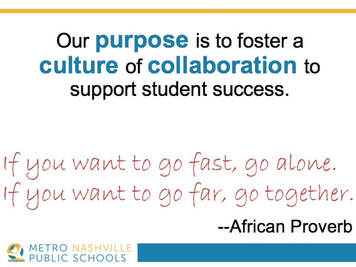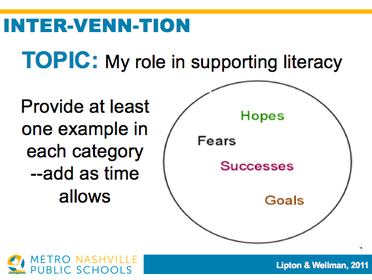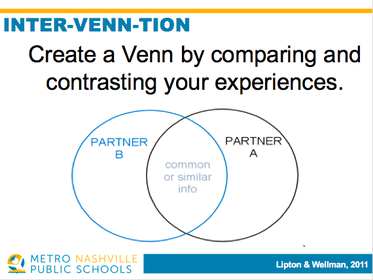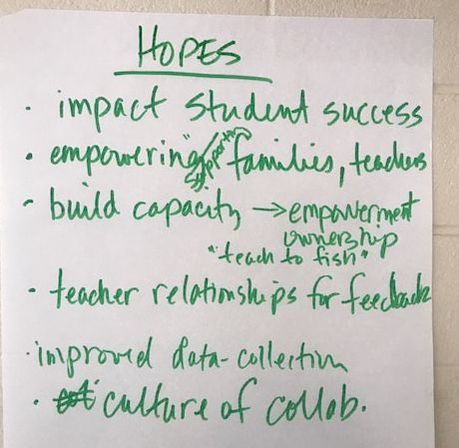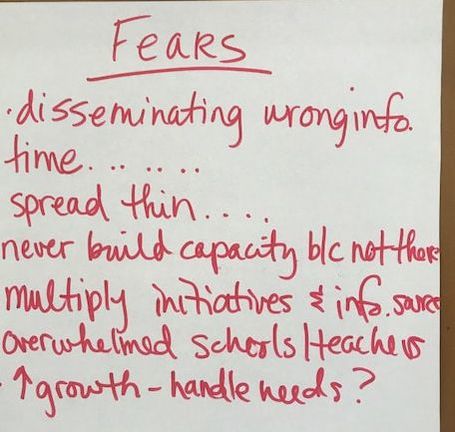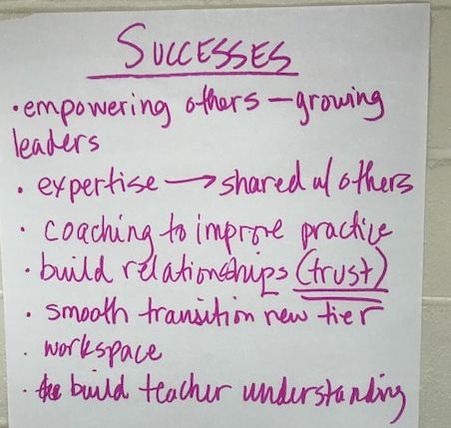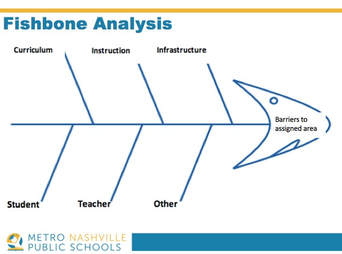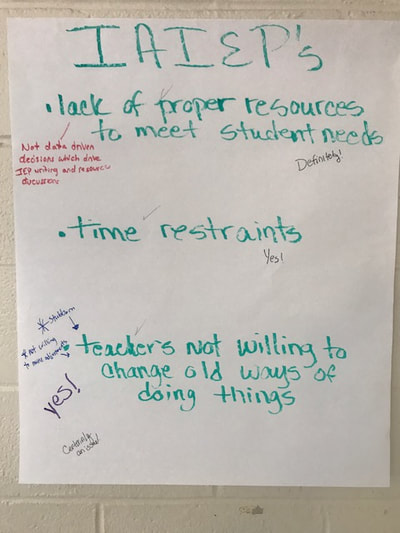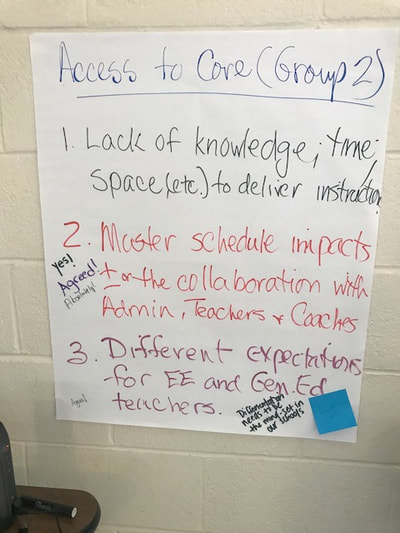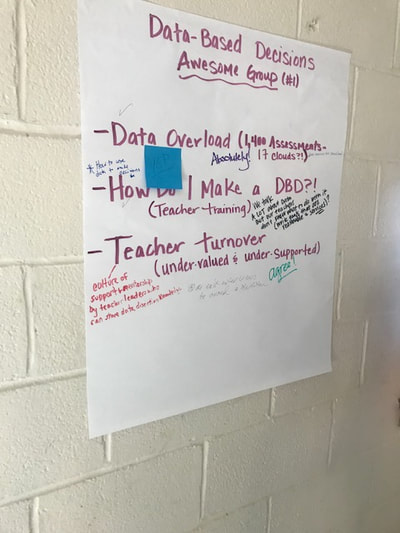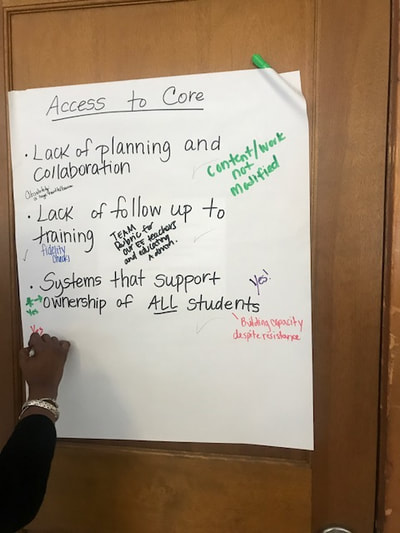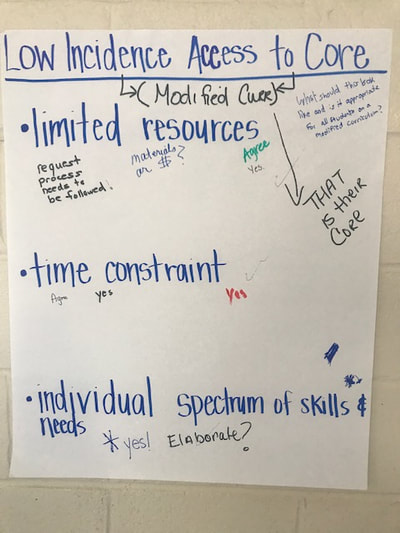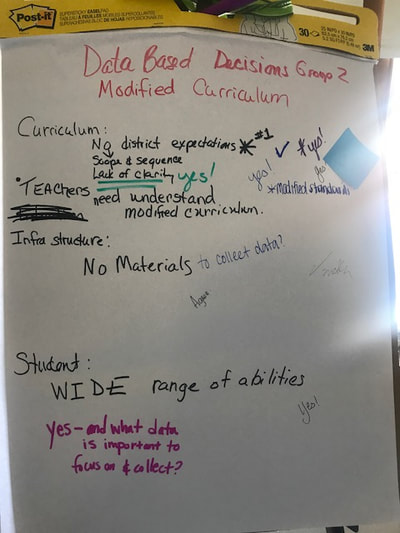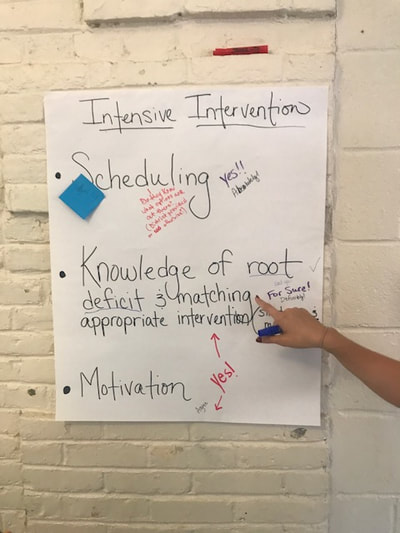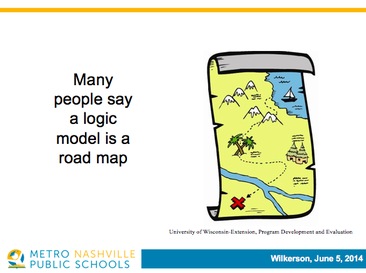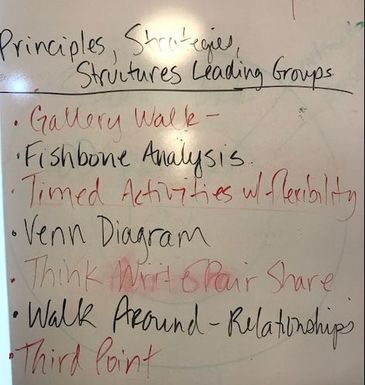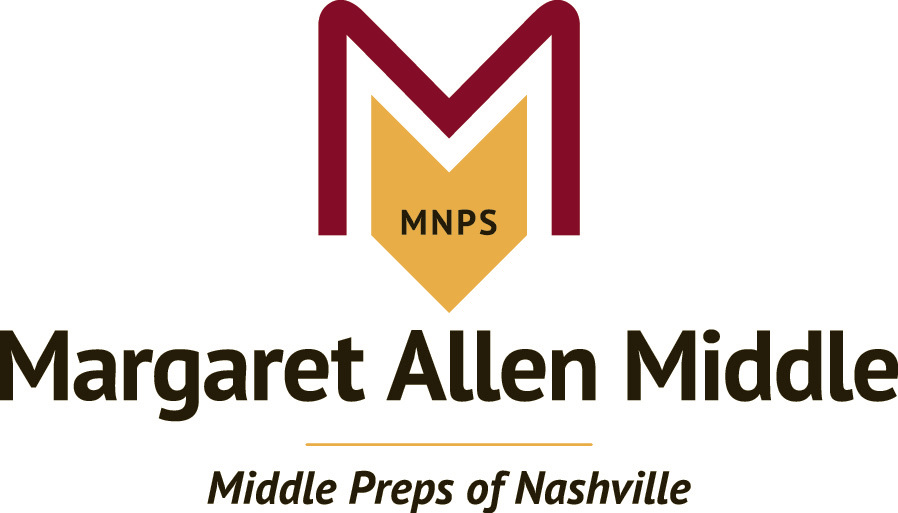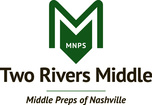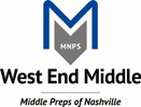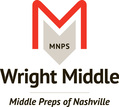Exceptional Education Coaches
Kassie Williams, a coordinator for the Exceptional Education department, is using the collaborative inquiry process to work with coaches this semester. There are a series of sessions.
Session 3--November 15, 2017
Today, the expert groups received feedback about their action plan by using a critical friends protocol. Then, they had time to work on finalizing their plans before presenting them to the MNPS Exceptional Ed. Leadership team in December. This learning journey is an example of leveraging professional expertise to support student success.
|
|
| ||||||
Exit Ticket Reflection
What might be some actions I take as a result of our time together today?
|
|
Meeting Feedback
How was the Meeting?
Plus
|
Suggestions for Improvement
|
|
|
Session 2--October 18, 2017
|
Dr. Margie Johnson facilitated the work and began the session with purpose, norms, and outcomes.
The collaborative inquiry process involves three main steps--activating and engaging, exploring and discovering, and organizing and integrating, which were used to analyze data and further inform their action plans. Below you can access the workshop materials and read about how the collaborative inquiry process was used to facilitate the work.
|
| ||||
Activating and Engaging
Since Last We Met...Give One Get One
Exploring and Discovering
Data Dive
Organizing and Integrating
Action Planning
|
Using the provided action plan template, teams used the above data observations to further inform their action plans, which were uploaded to one drive for review and feedback.
|
| ||||
Next Steps
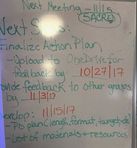
Next steps were developed after input from teams.
The plans are well on their way to being developed and will be shared at the November meeting. I look forward to learning more with this outstanding team of educators.
The plans are well on their way to being developed and will be shared at the November meeting. I look forward to learning more with this outstanding team of educators.
Exit Ticket Reflection
What might be some actions I take as a result of our time together today?
|
|
Meeting Feedback
How was the Meeting?
Plus
|
Suggestions for Improvement
|
Session 1--September 20, 2017
|
One strategy we learned about leading collaborative teams is to always start with the what, why, and how. Dr. Margie Johnson kicked off the meeting with the purpose, using an African proverb for the why, and using the collaborative inquiry process for facilitating the conversations for the day.
| |||||
Activating and Engaging
Inter-VENN-tion
Dr. Margie Johnson facilitated participants identifying and sharing the Hopes, Fears, Successes, and Goals for their current role in MNPS. This discussion served as a springboard for the discussion about Shifting the Narrative "from 'fixing the teacher' to collaborative expertise" (Hattie, 2015, p. 5)
Exploring and Discovering
Fishbone Analysis
|
This year, Exceptional Education coaches have four areas of focus:
With people assigned to different groups of focus based o their preference, the group convened to identify the top 3 barriers for their specific area of focus. Afterwards, the groups engaged in a chalk talk, so everyone got to see their top 3 barriers and provide feedback. |
Organizing and Integrating
Logic Modeling
|
A tool used to address barriers is called a logic model. A logic model first identifies the long term, or ideal, outcome and them backwards map to develop a road map for removing the barriers.
Each group used Spend-A-Buck protocol to determine the top barrier for their group's focus. They then developed a long term outcome for their logic model and identified a group leader. Teams will continue to work on logic models and then developing Spring professional development opportunities for addressing their area of focus. |
Next Steps
- Small group plan to meet to finish discussing logic model, or road map, to inform creation of PD sessions for the spring 2018.
- Use provided PD planning template to establish objectives for the Oct. 18th meeting.
- Incorporate strategies used from today’s session into the PD planning.
Leading Groups Debriefing Discussion
What strategies, structures, and principles did you observe me using during today’s session that you might use when leading groups?
|
Exit Ticket Reflection
Reviewing your Inter-VENN-tion goal from this morning, what is your goal now for supporting literacy?
|
|
Meeting Feedback
Plus
|
Suggestions for Improvement
|
|
|
